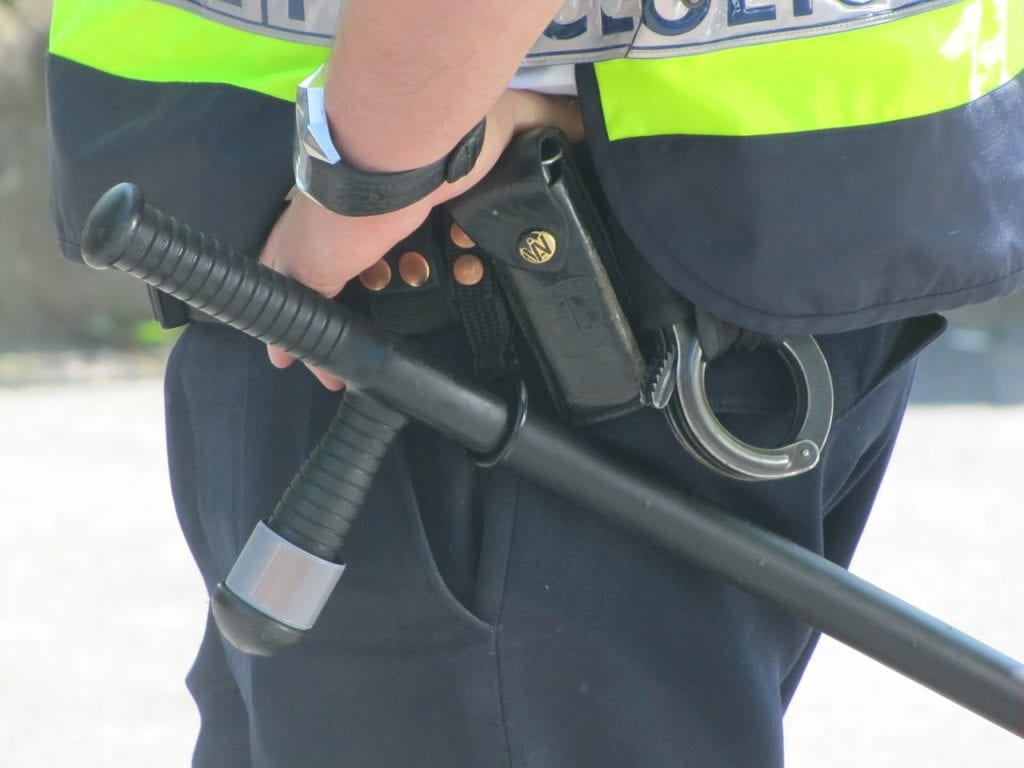
Included in their arsenal, Detroit police will now be carrying Tasers as well.
The Detroit Board of Police Commissioners has been haggling over this issue for years. Should Detroit police officers be allowed to use stun guns, also sometimes called tasers, or not? Well, it seems the debate has reached a conclusion. Last week the Commission voted unanimously to allow Detroit Police officers to carry “electronic control weapons” while on duty.
There are already several law enforcement departments in Michigan that arm their officers with Tasers, in particular the Michigan State Police. Many departments believe that stun guns and Tasers offer law enforcement personnel in the field a non-lethal way to protect themselves and others. Being able to incapacitate someone who is a threat to officers and civilians without killing them is highly beneficial. At least, that’s the argument used by police.
However not everyone agrees with this perspective. Some people believe that when using a non-lethal weapon, some officers may be tempted to use additional force. There are recorded instances of officers repeatedly tasing someone, in some cases causing permanent injuries. According to Amnesty International, since 2001 more than 500 people in the U.S. have become disabled after being exposed to a Taser or other ECD. All of this raises the issue of possible abuse.
Detroit police Commissioner Reggie Crawford was one of the people who opposed the use of tasers by police in the beginning, but has since changed his mind. Crawford is a former Detroit police officer and a current Wayne County Sheriff’s deputy assigned to the county jail. He says he understands people’s concerns because he was initially very opposed to officers being armed with tasers and stun guns.
“Twelve years ago I was opposed to them, because I’d been reading about the deaths associated with them. However, this time around, I supported them, due to the fact that when you do the research, you’ll find most of the deaths associated with the use of Tasers is because officers violated policy. If they follow policy, there shouldn’t be too many issues.”
Technically, there are differences between stun guns and Tasers, although many people use the terms interchangeably. According to Stun Gun Defense Products, “Stun guns are close proximity self defense devices that use high-voltage electricity to stop an attacker by momentarily disabling muscle control.” This is different from Tasers, which they describe as follows.
“TASER devices are electroshock weapons that use electrical current to disrupt muscle control, stopping an attacker dead in their tracks. TASER devices can be used both close and far range. Upon firing, TASER devices shoot two metal probe darts a distance of 15 feet to reach an attacker before he reaches you. The TASER can also be used as a direct contact stun gun, allowing for close proximity self defense.”
As of 2012, Michigan law allows civilians to own stug guns and Tasers. However, the law treats these weapons much as they do guns. In order to purchase one you will need to apply for a concealed carry permit and pass a training course. Restrictions that govern their use, and penalties for misuse are very similar to those governing guns in the state of Michigan.
Carrying a concealed weapon without a permit is a serious felony. A person in violation of Michigan CCW law could be charged with a felony, punishable by up to 5 years in prison, or by a fine up to $2,500.00. If you or a loved one have been accused of a weapons-related crime in Michigan, contact The Kronzek Firm immediately at 866 766 5245. Our skilled defense attorneys have decades of experience handling weapons charges for our clients, and getting favorable results. We are available to take your calls 24/7. Don’t wait. This is your future on the line.





